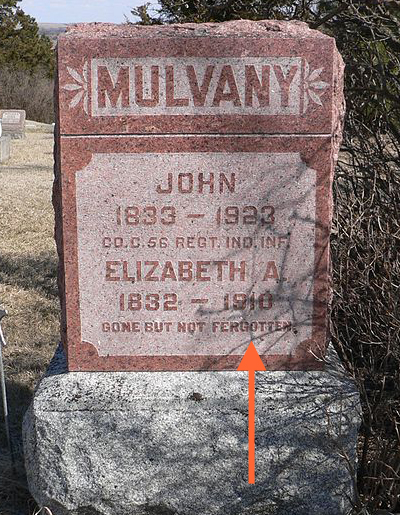Even to the Grave

Source: Mason City, Nebraska Mulvany tombstone, Ammodramus, Wikimedia
Spellers run the gamut from appalling to superb. In Anguished English, Richard Lederer provides examples of misspellings from students’ papers, which you can see by mousing over each sentence below:
- “I am in the mists of choosing colleges.”
- “During peek season the beach is covered with hundreds of bikini-clad beauties.”
- “I know people who have found dishes and tools and bowels from the Indians.”
Although it can be entertaining, bad spelling mistakes are also embarrassing, especially if they can't be fixed. Take the tombstone of the Mulvanys of Mason City, Nebraska. Poor spelling is perceived as a mark of ignorance, and the Mulvanys—may they rest in peace—can’t undo that perception. After seeing this engraving, the English teachers in Mason City probably asked to proofread the tombstone engraver’s drafts before he went to work on any of their relatives’ grave sites.
You probably know that the top tier of superb spellers competes each year in the Scripps National Spelling Bee, where narcolepsy, sarcophagus, and antediluvian are among the winning words. However, it’s not just those challenging words that present problems for people who spend their lives making sure words are spelled correctly. Even editors make mistakes. Phil Corbett, Associate Editor of the New York Times, tallied the use of the word indispensable in the Times. He found that his reputable newsroom had spelled indispensable correctly 161 times in the last year. “Unfortunately,” he admits, “we spelled it incorrectly, as ‘indispensible,’ 17 times, an error rate of nearly 10 percent.”
In this “spellbinding” lesson, you will review rules and commonly misspelled words like indispensable. You will learn when to use the spell-checker and when to override it with your own good judgment. You will even test your spelling expertise on a proofreading exercise.